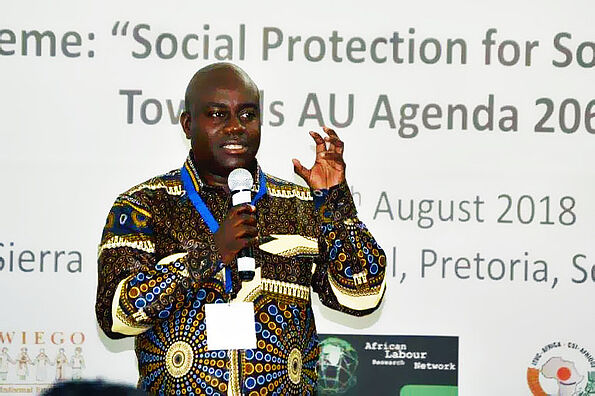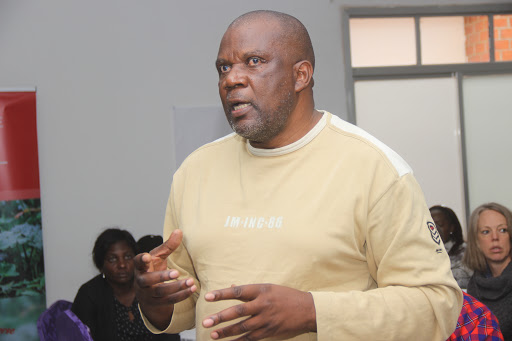The informal economy in Zambia: An interview with Lameck Kashiwa and Prof. Trywell Kalusopa


FES Zambia: The informal sector affects all aspects of human society. What is your perception of the informal economy?
Prof. Kalusopa: In economic terms, the failure of economic growth to translate into development and create decent employment in the formal sector is at the heart of the expanding informal economy. This has been the result of inappropriate macroeconomic policies implemented across the global and Africa in particular in the last three decades - economic policies that regard growth as an end in itself. So, because of these structural rigidities of development, the informal economy plays a critical role in the lives of millions of individuals providing human survival, livelihood and employment opportunities for the urban poor and rural households worldwide.
FZ: How effective are the Informal Economy Associations in Zambia?
K. Lameck: While Informal Economy Associations play a critical role in the welfare of informal sector workers as evidenced by so many outcomes from meetings held between associations and government, there is a lack of formal bargaining forums supported by law both at national and local level for guaranteed discussion outcomes.
Secondly, a lack of unity and competition among associations is another contributing factor as associations operate in silos while others are used by the political parties to destabilize other associations that stand the ground of representing their members.
Thirdly, informal economy workers seem to be convinced of not seeing the benefits that come with belonging to the associations and that leaders serve their own interests hence many do not have interest to join any associations.
FZ: How supportive is the state and the corporate world in Zambia of the Informal Sector?
K. Lameck: There is no effective and genuine support, as the state only supports informal economy worker’s associations that are used in political campaigns by giving them small amounts ranging between ZMW100 to ZMW150 per individual under what is called ‘Empowerment Funds’, while associations that are non-partisan are not supported in any way either by the corporate world or government.
Prof. Kalusopa: In Zambia, nearly all informal wage earners are excluded from the two largest social security schemes: The National Pension Scheme Authority (NAPSA) and the Workers’ Compensation Fund Control Board (WCFCB). (…) The Government of Zambia commenced the process to reform the social security system to provide for comprehensive social security coverage and extend coverage to workers in the informal economy. However, the fruits of these intensions are yet to be seen.
FZ: What are the most common challenges faced by individuals to run businesses in the informal economy?
K. Lameck: Lack of capital, lack of business skills, lack of trading space, high interest rates, inability to access loans due to harsh lending conditions, lack of space to share concerns as these may be regarded as being political and sexual harassment. Additionally, there are too many illegal fees from different groups, competition with supermarkets and none protection from government by restricting some businesses for Zambians.
FZ: What can be done to improve social security in the informal economy?
Prof. Kalusopa: The challenge of social protection for those in the informal economy desires the need to adopt a pro-active agenda that recognizes and views the informal economy as dynamic, adaptable and entrepreneurial in its own right and hence the need to initiate a hybrid mutual fund that will support the informal economy, particularly the market traders.
About the interviewees
Prof. Trywell Kalusopa is the founding Executive Director of the Zambia Institute for Labour Research & Development (ZILARD).
Lashiwa Lameck is the current General Secretary for the Alliance for Zambia Informal Economy Associations (AZIEA).
Learn more about the programs and projects of FEZ Zambia at www.fes-zambia.org or send them an email at info(at)fes-zambia.org
About FES Connect
Connecting people, in the spirit of social democracy, we source and share content in English from the German and international network of the Friedrich-Ebert-Stiftung.




